Entertainment
Why Rob Reiner Took 41 Years to Make a This Is Spinal Tap Sequel: ‘The Bar Is High’ (Exclusive)
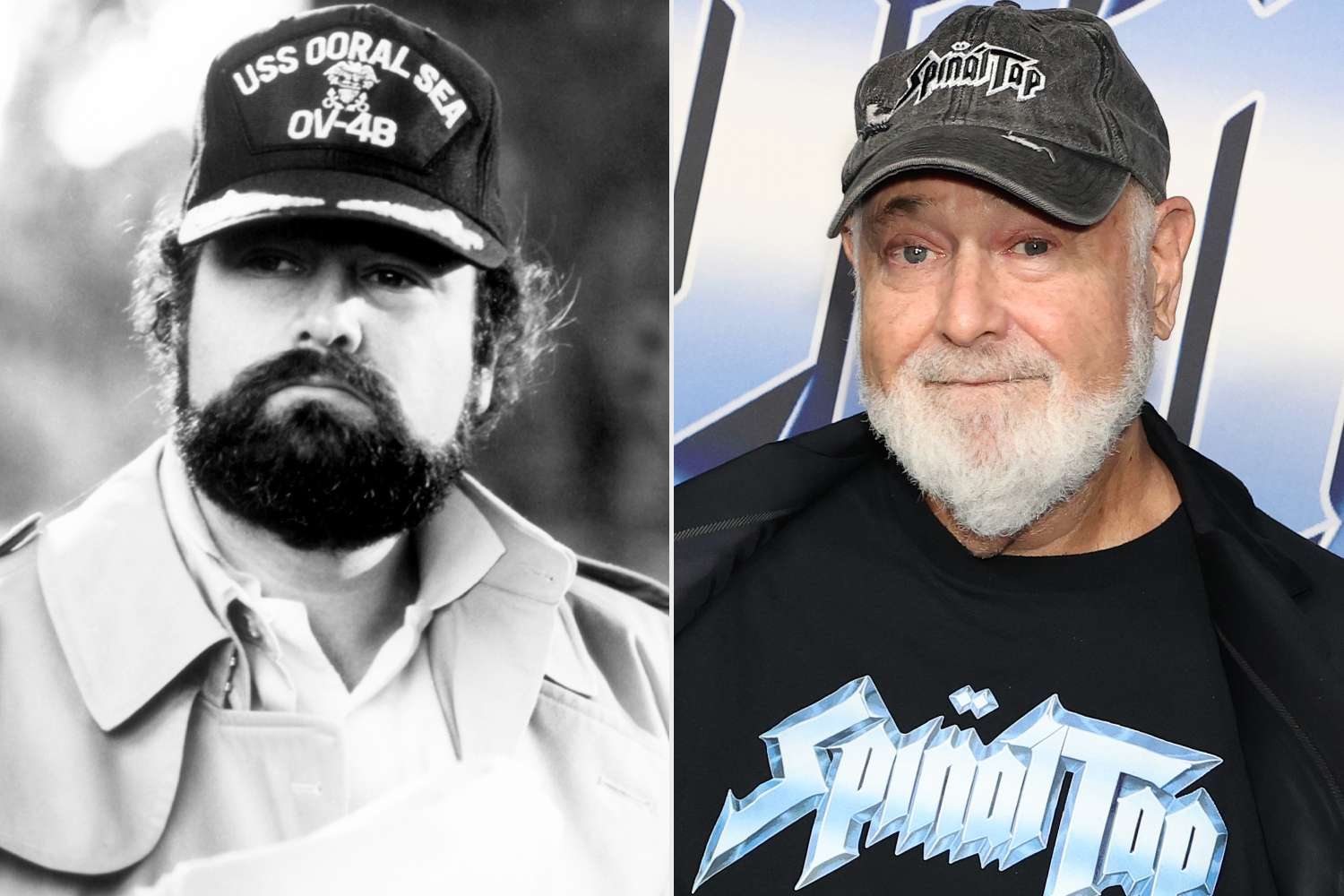
NEED TO KNOW
- Rob Reiner tells PEOPLE why he decided to make a sequel to his 1984 mockumentary This Is Spinal Tap
- “It’s about an aging rock band who has to do one more concert and what happens,” Reiner says of Spinal Tap II: The End Continues, in theaters now
- Reiner wrote, directed and costars in the movie as fictional documentarian Martin di Bergi, alongside returning cast members Michael McKean, Christopher Guest and Harry Shearer
In the back of his head, Rob Reiner knew that, sure, he could do a sequel to This Is Spinal Tap, the now-fabled, addictively quotable 1984 mockumentary about the world’s loudest rock band that helped him transition from sitcom actor to top-tier feature film director – but he and the film’s stars Michael McKean, Christopher Guest and Harry Shearer just never wanted to.
Until nearly 41 years later, they did with the follow-up Spinal Tap II: The End Continues, which hits theaters this weekend. But it wasn’t a sudden bolt of creative inspiration that initially kickstarted the thought process: it was a year-long battle to untangle the first film’s legal rights.
“We never intended to do a sequel,” admits Reiner, 78, speaking exclusively with PEOPLE. “People over the years have come up to us and say, ‘Yeah, you can do a sequel.’ We said, ‘No — we did it. It’s done. We’ve done it. Eventually, the Library of Congress puts it in the National Film Registry, and ‘This goes to 11,’ is in the Oxford Dictionary.”
The pleas for a sequel only intensified as the film’s reputation soared, he says, “but we said, ‘That’s it. We’ve done it.’”
Various one-off reunions would bring the fictional band back together on occasion. Tap would release four albums, played festivals and concerts, including London’s Wembley Arena and the Royal Albert Hall, Los Angeles’ Greek Theatre, New York City’s Carnegie Hall, and the 1992 The Freddie Mercury Tribute Concert.
As the decades passed and This Is Spinal Tap only increased in pop cultural cachet, Reiner recalls, “Harry Shearer realized we had never gotten any money for it. I mean, we’re talking about DVDs and videos and foreign sales and all of the permutations of Spinal Tap and the four of us, who had shared 40% of the profits, which made — I’m not exaggerating, it sounds like a joke, we made 82 cents apiece! Harry said, ‘This isn’t right. This isn’t right.’ He sued these various companies who owned the rights and hadn’t done anything with it to get the rights back.”
After about four years of legal wrangling, Shearer succeeded and the rights reverted to the creators.
“Now we have this. We go, ‘What do we do with it?” Reiner explains. “We got together, we started out, ‘Well, should we do a sequel?’ We said, ‘Nah. No, no, we’ve done it.’ The bar is high, because it’s become kind of this classic.”
“We met a couple of times, and then something came out of it,” the filmmaker continues, “which was a very natural thing: that the guys hadn’t played together in 15 years. We thought, ‘Wait a minute – what is this? Is there bad blood? Are they not speaking to each other?’ That became the basis for this idea. It wasn’t until we had an idea that we thought, ‘Oh, this can stand on its own. Even if you haven’t seen the first one, this film will stand on its own.’”
Never miss a story — sign up for PEOPLE’s free daily newsletter to stay up-to-date on the best of what PEOPLE has to offer, from celebrity news to compelling human interest stories.
The premise was a natural fit more than four decades later, and like the original, allowed director and performers — who improv their way through loosely structured scenes — to riff on the real-world phenomenon of rockers who’ve continued to take the stage years, even decades after their initial heyday.
“It’s about an aging rock band who has to do one more concert and what happens,” Reiner says. “We thought, ‘Let’s take a look at this again’… You’re looking at the Rolling Stones, who are still touring. You’re looking at Paul McCartney, who is still out there. You’re looking at the Eagles, even though Glenn Frey is gone and his son has taken over, and they’re touring. Oasis is back together again. I mean, bands are touring at that age… Even AC/DC and Judas Priest, I mean, they go out and they still perform.”
“The thing is they love the music, they love to play, and this is what they do. We thought, ‘Okay, we can take a look at this and what happens to these people,’” Reiner offers. “I made a joke: I said, ‘You look at Spinal Tap, they haven’t grown emotionally, they haven’t grown musically, they have only grown a couple of skin tags or whatever, but they’re still doing it and they still love doing it. Let’s explore what that is.’”
“Then we were able to play off the first one and the relationship between Nigel [Tufnel, the lead guitarist played by Guest] and David [St. Hubbins, the lead singer played by KcKean], which is very, very close,” Reiner reveals. “They’re like brothers, they’ve known each other since kids, and what are the problems? What are the conflicts? They’ve gotten even greater, because over the years things happen. That became a natural film to make, and we wouldn’t have done it unless we had something that we all felt, okay, this will stand on its own even if you haven’t seen the first one.”
Some of those “aging rockers” Reiner referenced actually make appearances in the film — McCartney and Elton John have significant roles, as do a series of celebrated drummers, including the Red Hot Chili Peppers’ Chad Smith, Metallica’s Lars Ulrich and The Roots’ Questlove, as potential replacements for Spinal Tap’s frequently deceased percussionists, and Garth Brooks and Trisha Yearwood are among the strategic cameo players sprinkled throughout.
Key players from the original film also turn up here and there, including Fran Drescher as the band’s former publicist Bobbi Flekman and Paul Shaffer as ex-tour manager Artie Fufkin. And Billy Crystal, who has a memorable split-second cameo as a mime-waiter in the first film and went on to headline another Reiner-directed classic, When Harry Met Sally…, can also be spotted in a blink-and-you’ll-miss-him moment. “I still see Billy – I had breakfast with him two days ago,” Reiner notes.
Read the full article here

-

 News5 days ago
News5 days agoKatie Holmes’ Longchamp Bag Is Tote-ally Trending — So Is This $27 Amazon Lookalike
-
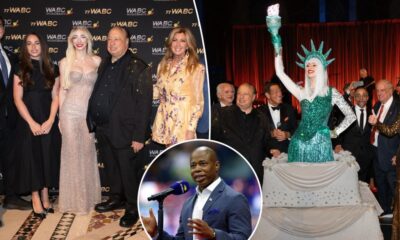
 Gossip6 days ago
Gossip6 days agoEric Adams attends powerbroker John Catsimatidis’ birthday
-

 Royals6 days ago
Royals6 days agoKate Middleton seemingly brunette again after blond makeover
-

 Royals4 days ago
Royals4 days agoPrince Andrew embarrassed King Charles ahead of Trump visit
-
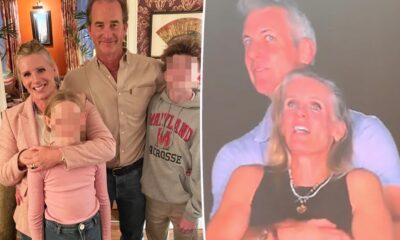
 Celebrity6 days ago
Celebrity6 days agoEx-Astronomer HR exec Kristin Cabot divorcing husband after Coldplay kiss cam scandal: report
-

 Celebrity6 days ago
Celebrity6 days agoJennifer Lopez takes Ben Affleck’s son, Samuel, shopping
-
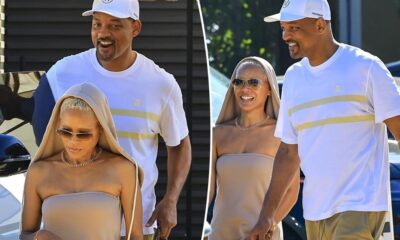
 Movies5 days ago
Movies5 days agoWill Smith and wife Jada Pinkett Smith step out together for first time in 10 months
-
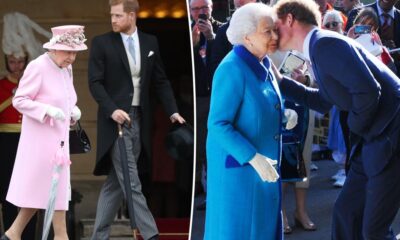
 Royals4 days ago
Royals4 days agoPrince Harry visits Queen Elizabeth’s gravesite on 3rd anniversary of her death
















